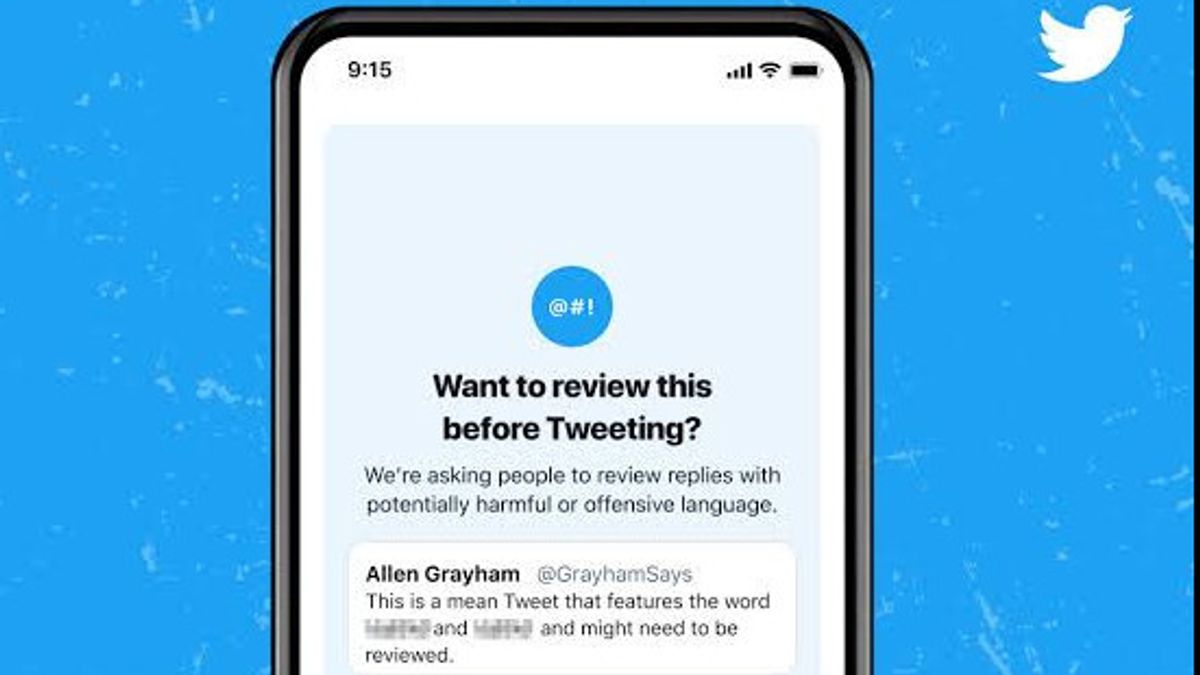JAKARTA - Usually, Twitter is a place to pour out your heart, whether you are happy or upset. But in the UK, Twitter users should be more careful when playing social media, especially Twitter.
Sending offensive or malicious tweets is a criminal offense in the United Kingdom (UK). Those found guilty can face fines, community service, and even prison terms.
The most recent is the case of a 36-year-old man named Joseph Kelly, originally from Castlemilk, Glasgow, who was found guilty recently of posting a highly offensive tweet about Captain Sir Tom Moore.
Moore is a British army officer who raised money for the UK National Health Service by walking 100 laps around his garden before his 100th birthday, and on February 3, 2020, the day after Moore died, Kelly tweeted, “the only soldier Good English is a deed, burn auld fella buuuuurn.”
Because of his tweet, Kelly was found guilty and is now awaiting sentencing. Seeing this, then someone can be sued for sending a tweet, no matter how offensive, this is a surprise to many internet users, especially in the United States (US).
In the US strong free speech laws (aka the First Amendment) protect almost all types of public speech against government prosecution. The UK has long held to differing standards and, for two decades, has demanded internet users to comply with the Communications Act 2003. Including sending offensive messages.
Section 127 of the Communications Act (UU) states that it is an offense to send a public message of a highly offensive or indecent, obscene, or threatening character.
Case Example Section 127 of the UK Communications Act
However, there is a lot of ambiguity in the content of Section 127. But the best way to see what the law does and doesn't cover is to look at some past cases, both successful and unsuccessful. As below, quoted from The Verge, Tuesday, February 8.
First, there was Paul Chambers, who was arrested for tweeting, “Shit! Robin Hood Airport is closed. You have a week and a bit to solve your problem, otherwise, I will blow the airport sky high!!”
The Chambers prosecution in 2010 started a national debate over the use of Section 127, with his trial dubbed the Twitter Joke Trial, drawing support from celebrities such as Stephen Fry. The Chamber's conviction was eventually overturned by the British High Court in 2012.
Second, Azhar Ahmed, who was sentenced to 240 hours of community service and a $400 fine for posting on Facebook after six British soldiers died in Afghanistan.
“People gassed about soldiers' deaths! What about innocent families who have been brutally murdered. Your enemy is the Taliban, not an innocent innocent family. All soldiers must DIE & go to HELL!," Ahmed said.
The three Joshua Cryers were sentenced to 240 hours of community service and a court fee of $200 for sending racist tweets to footballers. The prosecution argued that Cryer's message was not impulsive.
The four were Daniel Thomas, who was arrested for tweeting homophobic comments about British Olympic divers Tom Daley and Pete Waterfield.
"If there's any consolation in finishing fourth at least Daley and Waterfield can go and beat each other #teamHIV," Thomas tweeted.
SEE ALSO:
In the end, no charges were brought against Thomas, with Keir Starmer (then UK director of public prosecutions) concluding that the message was only meant to be seen by friends and family, not Daley and Waterfield.
It is difficult to say exactly how many cases are prosecuted under Section 127, but it is clear that the figure is much lower than the number of possible cases.
Statistics from England and Wales in 2012 showed that around 1.423 people were found guilty under Section 127 that year, while more recent figures from Scotland (which contains less than 10 percent of the total UK population) documented 644 prosecutions and 567 convictions in 2017 to 2018, This figure tends to decrease from its peak in 2013 to 2014.
So not everyone deemed malicious tweeting on UK Twitter faces jail time, but the hundreds of successful prosecutions each year are clearly still quite significant.
The English, Chinese, Japanese, Arabic, and French versions are automatically generated by the AI. So there may still be inaccuracies in translating, please always see Indonesian as our main language. (system supported by DigitalSiber.id)

















